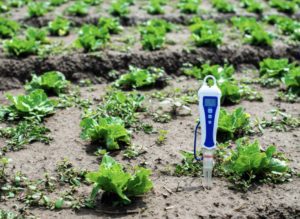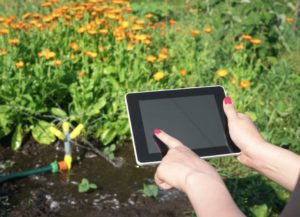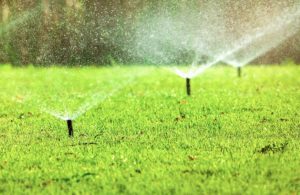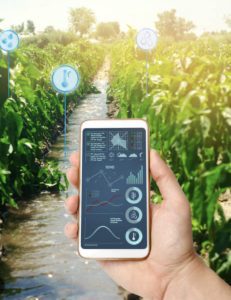Landscaping has embraced cutting-edge technologies to revolutionize water usage in the quest for sustainability and responsible resource management. Smart Irrigation Systems have emerged as a game-changer, offering commercial landscape owners the means to optimize water consumption while maintaining vibrant and healthy outdoor spaces. This blog post will explore how smart irrigation systems leverage technology for effective water management in commercial landscaping, focusing on soil moisture sensors, weather-based controllers, and automated sprinkler systems. Let’s delve into the benefits of these innovations and discover real-world examples of their successful implementation.

Soil Moisture Sensors:
One of the critical components of a smart irrigation system is the soil moisture sensor. These sensors are placed in the ground, monitoring soil moisture levels in real time. When the soil becomes too dry, the sensor triggers the irrigation system to water the area, ensuring that plants receive the precise amount of water they need, precisely when they need it. This prevents overwatering and minimizes water waste, as water is delivered only when it is genuinely required.
Example: A commercial property in California installed soil moisture sensors in its expansive garden. The system detected variations in soil moisture levels due to microclimates, allowing the property managers to tailor irrigation schedules accordingly. As a result, water consumption decreased by 30%, saving both water and costs.

Weather-Based Controllers:
Smart irrigation systems often incorporate weather-based controllers, leveraging weather data to adjust watering schedules. Considering factors such as temperature, humidity, and precipitation forecasts, these controllers can fine-tune irrigation patterns to avoid watering during or after rain events. This intelligent adaptation to weather conditions ensures efficient water usage and reduces the risk of waterlogging or other water-related issues.
Example: A hotel resort in a coastal area adopted weather-based controllers to maintain its lush landscapes. When the system predicted rain in the upcoming days, it automatically postponed watering schedules. This proactive approach saved an estimated 40,000 gallons of water during the rainy season, contributing to the property’s commitment to environmental sustainability.

Automated Sprinkler Systems:
Automated sprinkler systems are a cornerstone of smart irrigation. Unlike traditional manual systems, these automatic setups can be programmed and controlled remotely. Commercial landscapers can establish precise watering schedules, adjust spray patterns, and even easily activate or deactivate specific zones. This level of control ensures uniform water distribution and prevents wasteful irrigation practices.
Example: A corporate campus with extensive green spaces replaced its outdated sprinkler system with an automated one. The new system allowed for zone-specific programming, enabling targeted watering of high-traffic areas during office hours and the entire landscape during off-peak times. This smart upgrade reduced water consumption by 25% within the first year.

Smart irrigation systems have propelled the commercial landscaping industry into an era of sustainable water management. Businesses can significantly reduce water consumption while maintaining beautiful and healthy landscapes by harnessing technology such as soil moisture sensors, weather-based controllers, and automated sprinkler systems. These intelligent solutions save costs and demonstrate a commitment to environmental responsibility.
As the demand for water-efficient practices continues to grow, embracing smart irrigation systems is an investment in a greener future for both businesses and the planet. By incorporating cutting-edge technology into everyday landscaping practices, commercial properties can lead the way toward a more sustainable tomorrow.